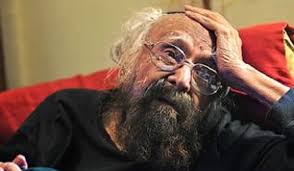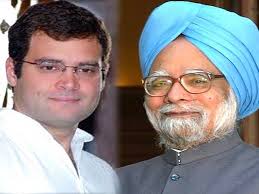New Delhi, Dec. 8: The question quite suddenly is not where Arvind Kejriwal came from to slay a three-term giant and threaten conquest of her kingdom. The question quite suddenly is where Arvind Kejriwal can go from here.
A formidable political reputation has been notarised by the public in the capital; the country’s attentions lie riveted. Are these the first steps towards a wider trampling of the existing political template? Is this the clarion of a new manifesto of change? Not from this party to that, or from one “ism” to another, but a fundamental change in the rules of the game, the overlaying of a new political ethic being righteously proclaimed as the only pure one, a takht badal do, taj badal do, beimaanon ka raaj badal do ethic.
Knowing him, Kejriwal probably isn’t terribly ruing he didn’t win Delhi; knowing him, he’s probably elated he has been spared the reins and afforded the freedom to travel beyond with the message of his big-bang debut.

It was not merely Delhi he had set out to take, it was always a place called India. That objective lies plainly stated on his Twitter handle for anyone to grasp. “Political revolution in India has begun,” it goes, “Bharat jaldi badlega.” (India will soon change.)
Among the more popular descriptors used for Kejriwal by AAP peers is “lambi race ka ghoda”, a man who’s in for the long haul. Delhi, even if captured, was never going to contain Kejriwal. Delhi unconquered is going to leave him free to run more ambitious missions.
There were those who rushed to annotate Kejriwal’s stunning step onto the centrestage with unsolicited notes of caution against casting ambitions wider. Like the BJP’s Ravi Shankar Prasad whose compliments at AAP’s heady hour came clipped with advice it shouldn’t hurry to look farther afield: “Delhi is one thing, India quite another.”
That may have left Kejriwal amused, had he found time from the chaotic jubilation around him to listen in.
The AAP boss framed his thoughts on that way back in 1999 when he launched Parivartan, a public-assistance NGO. Parivartan’s credo was, and remains: change begins with small things. AAP’s run on Delhi, it has been ungrudgingly conceded by the entire competing field, is no small thing.
Consider that Kejriwal hadn’t even a registered political party to call his own until eight months ago. Consider that it had no office, no office-bearer, no worker, not even a thought-out name. All it had was a cap and a credo — main aam aadmi hoon, I am the aam aadmi — but it stained by disapproval from its moral fount, Anna Hazare, who only wished a movement and never a political party.
Consider then, that Kejriwal’s AAP came close as a coat of varnish to taking Delhi, a rookie barging through veteran playmakers of the Congress and the BJP. More than 30 per cent of the vote share, 28 seats in the Assembly, a whopping 20 more than the Congress which, until today, had ruled Delhi for 15 years.
Consider also that when AAP came to be and announced its intention to contest Delhi it couldn’t name a dozen candidates it could hand out tickets to. It found 70 of them, one for each seat in the Delhi legislature, and nearly half of them won.
Many of them, like party spokesperson Shazia Ilmi, lost very narrowly; Shazia by a mere 300-odd votes. It’s not a scenario most in the party had even dared dream a couple of months ago. Shazia often tells the story of the first discussions that took within AAP.
“Most of us used to say ours is going to be a symbolic fight, we were not in it to win but to spread our message, create a base. But this man Kejriwal would always disagree, and disagree angrily. Why contest, he would ask us, if not to win? We knew Kejriwal had nothing to back him other than conviction but he infected all of us with it. We came to believe it was possible to win, very quickly he taught us that ambition.”
Delhi has now given that ambition legs, and Kejriwal will bid it to rove. A more widespread itinerary already lies signposted. AAP units in 350-odd districts across 19 states in the country — that is the party’s annexure to its sterling Delhi report card.
Don’t miss the expanded parameters of Kejriwal’s stated dare: “This is just the beginning,” he said as exhort to fellow celebrants at AAP’s camp headquarters in central Delhi as his numbers teased an unlikely majority. “I have said this is not an election but a movement, a revolution. We are going to finish this politics of caste, creed, corruption and crime, we are going to bring a new order. This is just the beginning.”
It’s clearly a whetted appetite Kejriwal speaks from, an appetite that wants to move on from the devoured Delhi table and nibble at others. It is an appetite fed by happy takeaways. Delhi has not bothered with widely articulated scepticism about Kejriwal and AAP. That they are untested. That they didn’t have a chance in hell of taking the Delhi Assembly; a vote for them would be a vote wasted. That they spoke a language too idealistic, if not also too self-righteous.
In that language, it would now appear, Delhiites chose to dissolve both their cynicism and their weariness with the big two taking turns in power, and chose AAP as warning wand.
It remains true that AAP and Kejriwal are untested and Delhi has not offered them an opportunity. It remains equally true that their first outing has offered no evidence the party has the ability to break into the great rural heartland.
But while the substance of AAP’s promise awaits demonstration in the crucible of power politics, what the IIT-trained former income-tax officer has come to display is a new style cross sections of people — patricians and plebeians alike — may have found refreshing.
Its two key elements are participation and proximity. AAP’s campaign became evidence the leader had returned among the people — no commando rings, no bullet-proof insulation, no security moat between the leader and led. Its pick of candidates was, equally, an exercise conducted with far greater democracy and embrace. It succeeded in creating some sense among people they had a greater role than just voting candidates imposed upon them.
Such participation may not be an easy thing to replicate elsewhere, and power will inevitably, bring trappings that will create distance between the ruler and the ruled. But then, Kejriwal has only just set out, and he has a blaze following in his wake. It’s begun with small things, who knows how big it could become?





